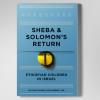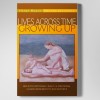Lear and his obverse, Prospero
Let’s leap to Shakespeare, that poet whom Harold Bloom said invented the human. Were we to have time for Lear alone, this would be enough. But, let us press ourselves and place King Lear and Shakespeare’s final play, The Tempest, aside each other like twinning, flickering stars to learn how one’s gravity affects the other and enlightens ourselves in turn.
Borges suggested that the tragic man is one who realizes he is in the tsunami’s cusp of his own making, realizes he is about to be overtaken, drowned, only too late to change the course of the wave, to change his fate. He is enlightened, but it is an enlightened darkness, blindness, often death. The Greeks’ tragic hero falls from greatness because of some internal flaw, often hubris, overweening pride. The Biblical Job suffers at God’s whim, despite Job’s silvered soul. Lear begins his own tragedy, in part because … he consumes words; a lifetime’s dedication and acts by Cordelia are not enough. He must be licked, slobbered over, slathered with verses. This is geniused irony: this great wordsmith, Shakespeare, seduces us with words, yet would make the fatal flaw of his great King to be his trust of words, the more the better: “Nothing will come of nothing.” A greater irony that the actor Shakespeare diminishes the past actions of the daughters, until the King catalyzes future actions, until he cracks his crown in two and is left with the empty shells, as his Fool put it to him.
But, Bloom announces Shakespeare as the inventor of the human. Is this audacious?
Lear and his characters need no gods. This is a rebirth, a re-naissance, of the Antique Greek concept that man is a self-contained unit, a body connected to soul, a concept reborn in the Renaissance and fundamental to psychoanalysis (Bloom or Auerbach). Lear and his ilk need only themselves to create intense love and hatred. Love is unrecognized until too late (as with Othello or with Ophelia). Hate is barely hidden from our sight, but unseen by the blind Lear. Ambivalence, that cardinal characteristic that Freud described present in our most charged intimacies, is not as present in Lear nor Job, not in Jacob nor Christ, but more clearly so in Hamlet with Ophelia and even more so in the comedies, such as Midsummer Night’s Dream, where men can’t trust their women … or at least trust their judgment about their loves.
Lear’s women — unlike the paler or styilized versions of those in Bible, in New Testament, even the idealized Penelope, nor the beatific Beatrice whose image alone drives on Dante — Lear’s women are powerfully alive, make themselves felt. Attention will be paid. They are articulate (even Cordelia’s sotto voce), act firmly. They are ruthless or faithful. The family dramas of Bible are comparatively skeletal: Jacob deceives and is deceived; young Joseph is naively overweening. His eleven brothers respond monochromatically. Christ has no clear overt family drama; although he constructs his dramatic family of disciples, including both Peter and Judas. Odysseus’ family drama is stark; the yearning son; the dedicated wife, the home-sick Odysseus. Nothing like the deeply layered hates and loves of Lear and company. How can Kent be so dedicated to this tyrannical King; Cordelia more so, even his Fool, who tries to save him, and the mad Edgar, who in his manner saves both his sanity and enlightens the crazed Lear?
Only in his final play does Shakespeare “cure” Lear, transform him into a wise Prospero. This former royalty must create his own kingdom from dross, in an isolated wilderness; masters the monstrous son of a witch, Caliban, liberates and then commands the sprite, Ariel: all, simply all, to create a future for his beloved Miranda daughter. Prospero’s name is ironic: robbed of his material prosperity, he “prospers” by his magic, isolated on a primeval isle. He only truly prospers, we shall see, when he relinquishes his powers, when he betroths his daughter. Again, with “time’s winged chariot” beating an incessant presence at my back, I summarize too abruptly. Lear breaks his heart over his daughter’s corpse; Prospero breaks his magic staff over his love for his daughter, over his desire to become more human. Lear dies in despair; Prospero lives with integrity. When we read these two plays together, we see how Shakespeare takes us from the “blow winds and crack your cheeks, rage…” of Lear’s towering, deteriorating narcissism to the maturity and ego-ideal forgiveness of Prospero who begs us release him from his bands with the help of our gentle hands so that he may truly prosper.
Lear never sees us who watch; Prospero turns to us in humility and begs our release with our breath, our applause. In the four to eight years between writing Lear and Tempest — a not unreasonable interval for psychoanalysis — Shakespeare has transformed the father’s madness. These tales are of fathers and daughters; of inner lives that are driven mostly from within with no need for gods to do good nor evil. Richard III or Edmund remind us: men blame the stars for their ill … but we create our own miseries … or not. The depth of the deeply human is felt here; it is closer to our conceptions of inner life than we have heard thus far.
——-
Notice how much has changed from Antique and Biblical representations of inner realities. Characters change. Inner selves — faults and strengths — rule us. Intimacies — both of love (Cordelia, Prospero) or hate (Edmund, Goneril, Caliban) — are all that is needed to drive the drama of life. Odysseus leaves and returns after two decades unchanged; only Biblical Joseph (and perhaps Moses) of the many Biblical characters show maturation. Borges’s deeply human Christ dies calling forlornly upon his father who has forsaken him, ending with how King David began Psalm 23. Lear too dies, but knows true love; Prospero restrains his retribution and thrives on his humane love. Shakespeare’s last play is a profoundly human and cautiously optimistic creation. When he turns to us, with his final humble words, this alone earns Bloom’s appellation, the invention of the human.
Time insists on a denouement, although with Shakespeare, we are some five hundred years short of the present. How much I have skipped; and how much I miss in the next half millenia. What’s skipped is voluminous. What about romantic love, which becomes part of our canon between the poles of chivalrous Medieval literature versus its comic representations in Boccaccio’s Decameron#? Quixote, a parody of the chivalrous, has within it something closer to romantic love, including his blindness to his broken-down steed Rocinante or pock-faced Dulcinea. Shakespeare hits directly to our hearts of romantic love with Romeo and Juliet. What of women’s voices, initiated by Sappho, and emerging full-throated with Mary Shelley and Virginia Woolf? And Flaubert’s flirtation with pure style to overcome the dross of content in Bovary or his final Bouvard et Pecouchet? Joyce’s attempt to write the novel to end all novels as a genre, with Ulysses, then with the riotous neologisms of Finnegan’s Wake? If there were time, I would end with Bellow’s work, final Ravelstein, a tale of a dedicated friendship-love between two men and ultimately between a man and woman. The voyage of Ravelstein and author has the taste of a Dante-Virgil journey, but one in which both strive for the other to develop wisdom. All these and too much more we will need to leave for the future as I turn now to draw some thoughts of what we as psychoanalysts can learn about the constructions of inner lives that we have inherited from two millenia of aesthetics. What can we conclude?
SLIDE 7: Escher
————-
Bounded Personhood; Body and Soul
The Greeks gave us a concept of bounded personhood (Bloom and Auerbach): that we have a concept of our body and mind somehow connected; that we think of ourselves (from early toddlerhood) as someone who can act upon the world and upon whom the world acts. This differs from a concept of feeling ruled by forces outside ourselves. But even this concept among the Antiques (Greek and Roman) was not entirely formed. The Greeks believed that anxiety — that pounding heart, that shortness of breath — was sent down from the sky and grabbed us by the chest. The Romans believed that seeing was truly physical. Our eyes emit invisible tendrils that feel the object. Or the object sends out tiny particles of its shape that bombard us. The evil eye was a true physical fear (Bartsch). Not until full-throated Renaissance, and particularly with political freedoms, do we have both a recrudescence and development of concepts such as autonomy, and the demand for freedom. And more so, do we have the rise of empiricism and belief in reason. These are part of our psychoanalytic fabric, but we know too well how earlier, more primitive senses of self remain undercurrents in our being: the patients who do not feel connected with their bodies; or whose bodies, they feel, rule them with out psychic trace; those — often not psychoanalytic patients — who feel either the devil made them do it or touched by the grace of God.



